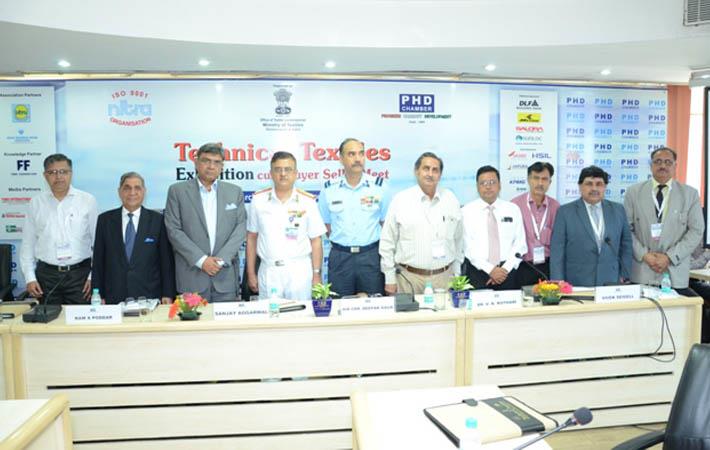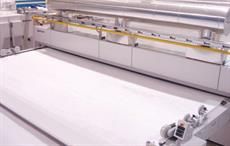
In 2015, technical textiles accounted for around 29 per cent share of the global textile revenues. Demand for technical textiles is expected to stay steady during the period 2015-2020, due to a broadening application in end-use industries, such as automotive, construction, healthcare, and sports equipment etc, said Sanjay Aggarwal, chairman, Industry Affairs Committee, PHD Chamber of Commerce & Industry (PHDCCI), at the recently concluded Technical Textiles Exhibition cum Buyer Seller Meet in New Delhi.
In 2015, the global technical textiles market was valued at around $153 billion. On back of strong demand, the global technical textiles market is estimated to reach at $194 billion by 2020, with global consumption expected to surpass 40 million tonnes, said Aggarwal.
Development and industrialisation are the main drivers for the demand of technical textile products in a country, said Aggarwal. “Given the large scale at which emerging nations are industrialising, the market for technical textiles can only be expected to grow in tandem with industrial growth in different parts of the world.”
India is expected to play a key role in shaping the future technical textiles market with consumers spending more on home textile, sportswear products, and medical products. In fact, technical textiles provides new opportunity to the Indian textile industry to have long term sustainable future. Despite achieving high growth rate, the per capita consumption of technical textiles in India is 1.7 per kg vis-a-vis 10-12 kg in developed countries. Globally, the technical textiles contribute to about 29 per cent of textile industry, in some of the western countries its share is around 50 per cent while in India it is a meagre 10 percent only.
Ram A Poddar, co-chairman, Industry Affairs Committee, PHDCCI, said that India’s textiles sector is one of the oldest industries in the economy dating back several centuries. Even today, textiles sector is one of the largest contributors to India’s exports with approximately 11 per cent of total exports. The textiles industry is also labour intensive and is one of the largest employers.
Vivek Seigell, director, PHDCCI, said that the time has come to position India as manufacturing hub for technical textiles. “So, the first step into positioning India as a technical textiles hub is to carve out a clear vision, strategy and action plan for technical textiles. For this, we need the support of the industry to map out existing technical textiles demand and future growth rates in each of the different technical textiles segments in domestic as well as global markets.” (RKS)
Fibre2Fashion News Desk – India

